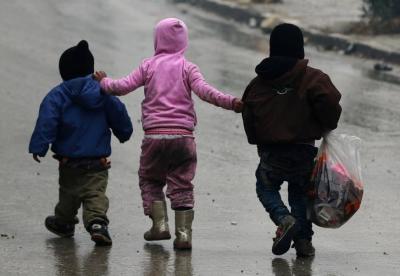Europe's Christians Pray for Child Asylum Seekers on Orphan Sunday

Unaccompanied child asylum seekers were a special focus for Europe's Christians on Orphan Sunday.
Orphan Sunday takes place each year on November 12 and this year, Christians were asked to remember the thousands of child asylum seekers and orphans around the world.
The European Evangelical Alliance was among the organizations participating, with a particular focus on the unaccompanied youths that have applied for asylum within Europe in recent years.
The day of prayer was an opportunity for the church to reflect on how 'God cares, deeply and personally, for each one of these children' and that 'God invites His people to be His hands and feet in service to them', the Christian Alliance for Orphans (CAFO) said.
CAFO said that some children end up on their own because they have lost their parents to death. In other cases, one or both parents has neglected or abused the children.
Without parents to look after them, many of the children end up on the streets, in temporary shelters or in refugee camps. Others travel many miles looking for a safe place or a relative they can live with.
CAFO said: "Certainly, there is space for differing opinions among Christians about government policies on immigration. It is not always clear how best to hold together compassion and concerns for security and other issues.
"But there is little ambiguity in the Bible’s call to the church. We are to be a people known for welcome, hospitality and care for all those in need – and, in a distinctive way, for children who lack the shelter of family."
According to UNICEF, there has been a sharp increase in the number of unaccompanied children in recent years, growing to at least 300,000 across 80 countries over 2015 and 2016, from 66,000 in 2010 and 2011
The European Association for the defence of Human Rights (AEDH) said that child migrants and asylum seekers are at risk of exploitation, violence and abuse.
It recently called out European Union countries for failing to adequately respond to the needs of unaccompanied migrants.
"Too often, their arrival on the EU territory does not put an end to their problems since, even within the Member States, national standards and practices are not sufficient to ensure their rights and sometimes even contravene their protection needs," it said.
"Age assessment procedures, reception conditions, the processing of files and the formalities they have to face vary from one Member State to another, without the principle of the best interests of the child being really taken into account, although this principle is guaranteed by the International Convention on the Rights of the Child (ICRD) and the Charter of Fundamental Rights (Article 24) and should take precedence over them being nationals of a third country."





















